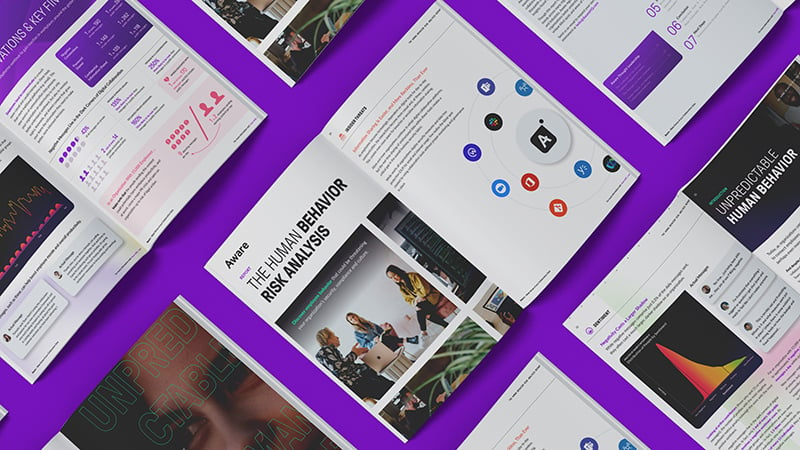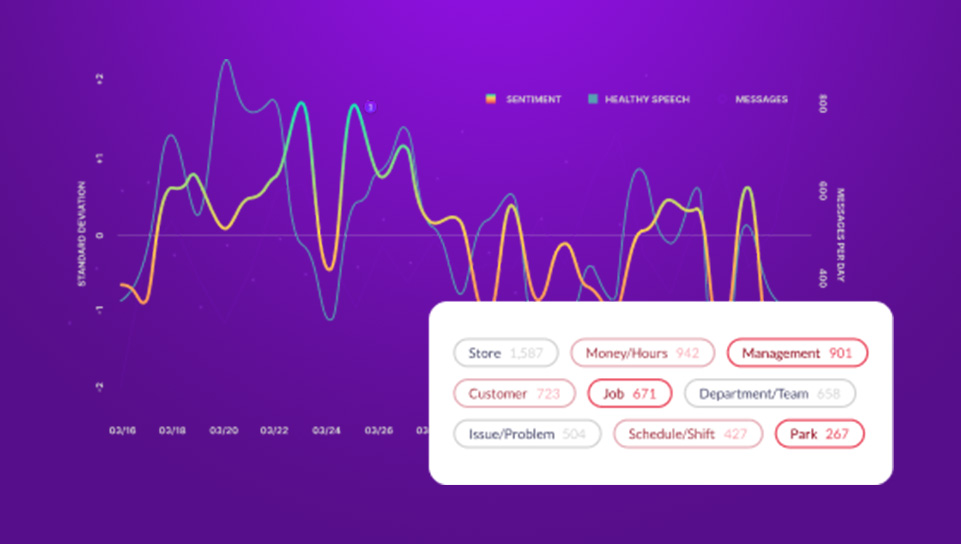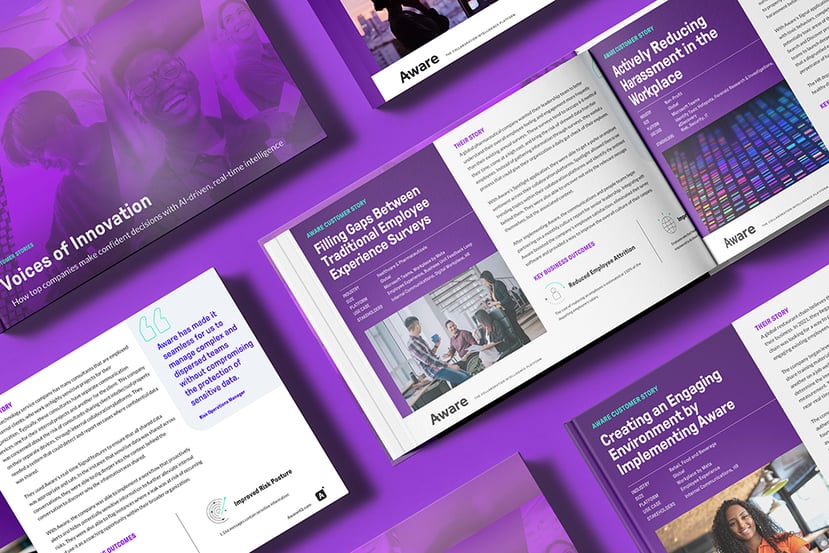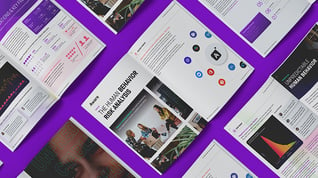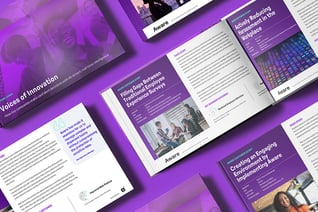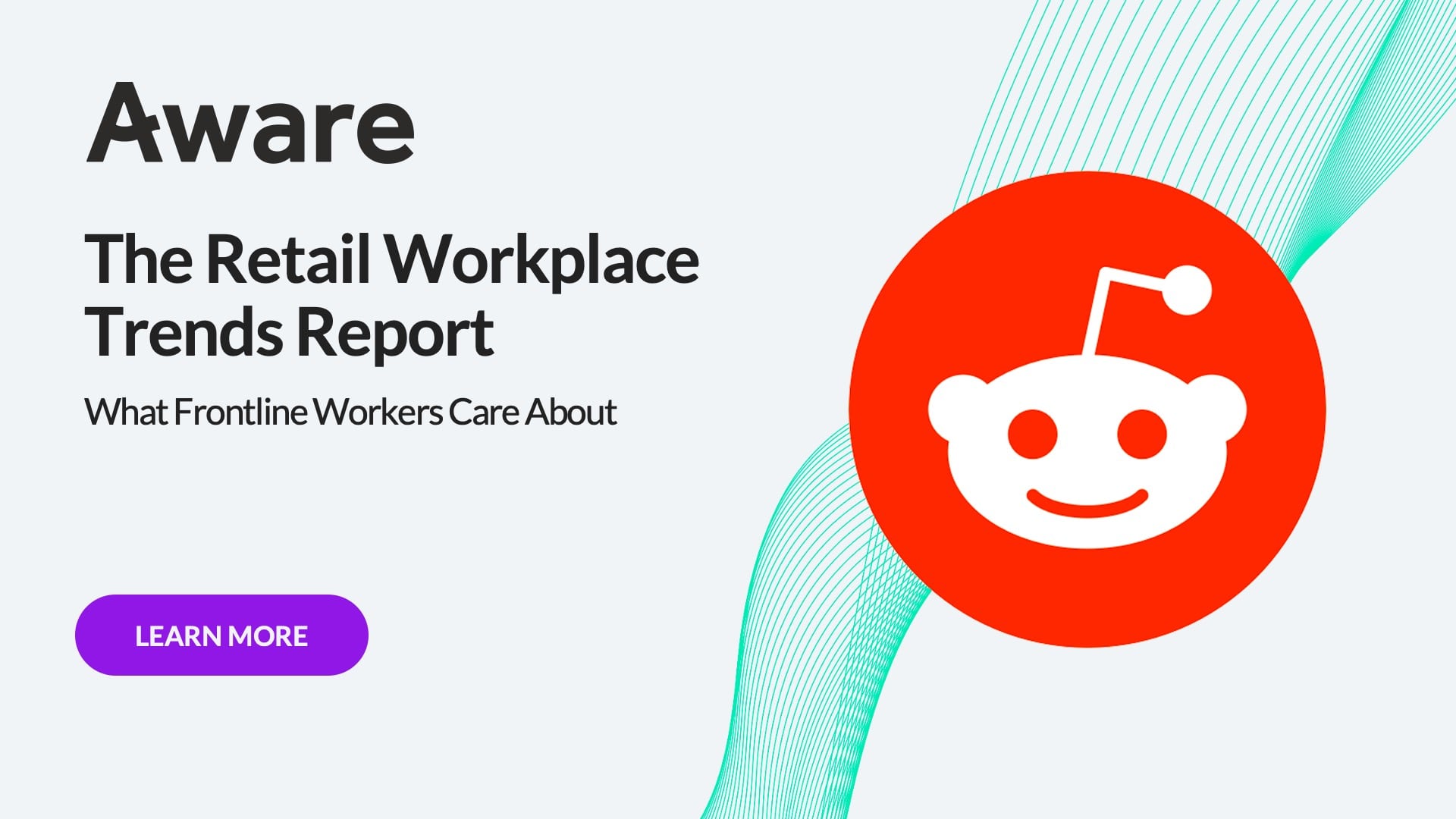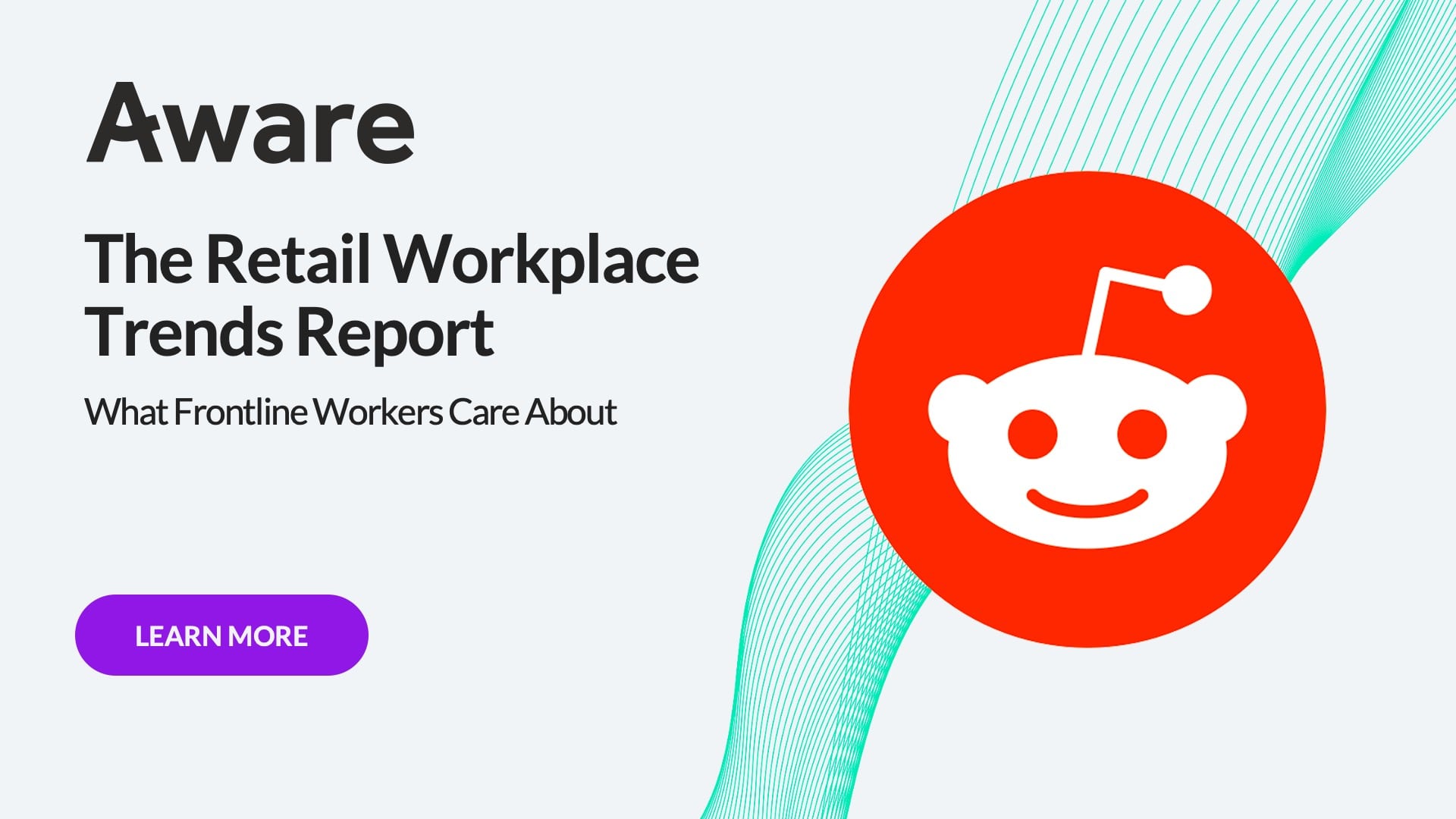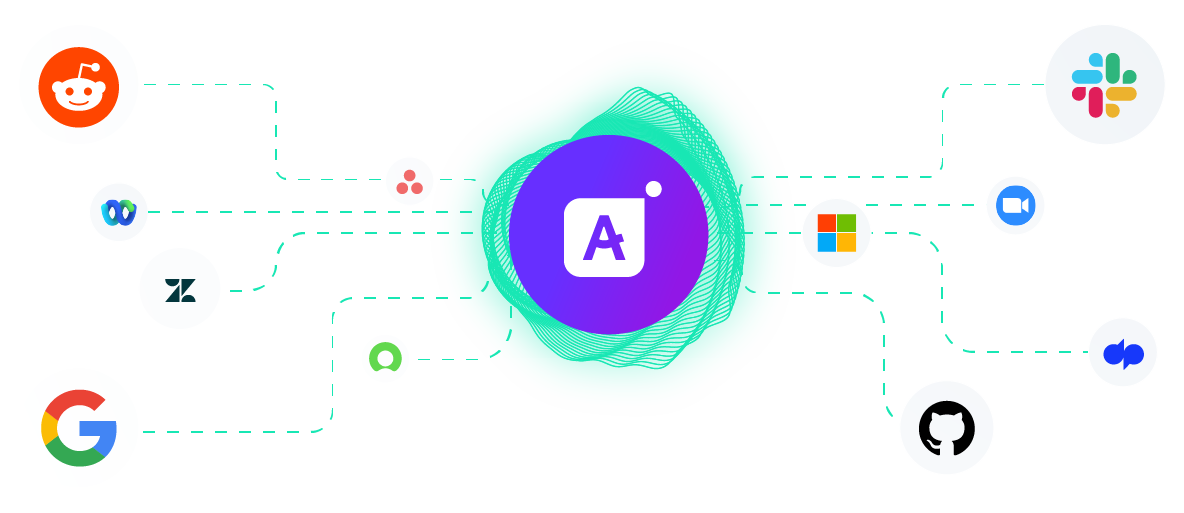How to Reduce Frontline Turnover with Employee Listening
by Aware
Employee retention rates remain historically low for companies in the service and hospitality industries. But high turnover on the frontline isn’t inevitable. The Aware Workplace Trends Report reveals the real cause of employee attrition and empowers more businesses to retain frontline workers and increase profitability through employee listening.
The post-pandemic labor shortage isn’t going away. Data from the U.S. Chamber of Commerce shows there are 2.9 million less people participating in the workforce today than there were in February 2020. This shortage doesn’t have a single underlying cause. Rather, it is the result of multiple factors, including:
- COVID-19 deaths and related long-term disabilities
- Older workers taking early retirement during the pandemic
- A declining birth rate shrinking the numbers entering the workforce
The service and hospitality industries have been the hardest hit by these shortages, especially on the front line. Less available labor has placed a premium on jobs that have traditionally been low paid and low prestige. Frontline workers have more freedom than ever before to walk away from positions where they feel undervalued, leading to spiraling turnover rates and crashing retention.
Across leisure and hospitality, monthly turnover rates have outpaced all other industries since July 2021. The retail industry isn’t far behind, and both sectors have an ongoing labor shortage of 40-50%. To survive, businesses must find new ways to prioritize the front line and increase employee retention.
Why is frontline turnover so high?
While 47 million Americans quit their jobs during the “Great Resignation,” hiring rates have outpaced resignations since November 2021. Those people didn’t leave the workforce entirely, they left one position for another.
Employees don’t leave without a reason to do so. Some reasons are incentive-based, such as seeking higher renumeration. Others are about escaping unsustainable conditions in their current workplace, such as a toxic company culture or poor management. Uncovering the reasons why people leave must be a priority for business leaders seeking to stem the tide.
To understand the pressures facing frontline employees specifically, Aware data scientists used the Aware platform’s industry-leading AI technology to explore sentiment across eight major retail and frontline employee subreddits. Read the study to learn more about the surprising common cause of high employee turnover.
How does employee turnover affect business profitability?
The effects of employee turnover are felt far beyond the scope of the vacant position. The cost of replacing an employee, even one on the front line, can range from half to twice their annual salary. Annually, voluntary turnover costs American businesses over a trillion dollars.
High turnover rates also mean the business is never functioning at full strength. Too many novice employees mean slower customer service and more mistakes as they learn the ropes. Businesses also lose productivity and lower morale of experienced workers. Constantly training new colleagues or picking up the slack will ultimately lead to increased churn.
When employee turnover is high, businesses also lose valuable institutional knowledge. It takes experienced employees to understand where they can most effectively make a difference, especially when it comes to providing an exceptional customer experience. The inevitable result of losing that knowledge is slower service and, ultimately, lost sales. High employee turnover thus affects profitability at every level of the business.
The hidden cost of high frontline turnover
What high frontline turnover ultimately indicates is a workplace filled with unhappy and checked-out employees. These employees aren’t incentivized to do great work or provide great customer service. That’s a massive problem because the front line is the public face of the organization. Nobody cares about the company culture in Head Office if the cashiers in stores are always surly or carryout orders are always wrong.
High frontline turnover has a detrimental impact on overall organizational performance and brand reputation in ways that cannot always be easily measured until it’s too late.

How can companies reduce frontline turnover?
Some of the factors affecting employee turnover are easier to address than others. Raising the renumeration for a position can immediately reduce turnover. However, other adjustments can also make the role more appealing. More flexible working hours, better working conditions and greater opportunities for growth and advancement can all increase an employee’s willingness to stay.
There are other, less tangible factors that also impact employee turnover. How appreciated employees feel, and how respected by their peers and leaders, strongly impacts retention rates. There’s truth in the saying that people don’t quit bad jobs, they quit bad managers. Helping employees to feel more supported and valued at work requires greater commitment than handing out a small raise but can reap better returns in the long run.
Focusing on building a strong, empathetic company culture should be a pivotal strategy for any business aiming to reduce turnover and increase profitability, and that culture must extend all the way to the front line. Some ways that forward-thinking businesses are tapping into frontline company culture and making workers feel more supported include holding standardized performance reviews, offering regular feedback and more training when requested, and conducting surveys, town halls and listening sessions.
To really understand how to reduce employee turnover, businesses also need to speak with outgoing employees and solicit candid feedback about why they left.

How Aware helps businesses reduce frontline turnover with employee listening
Even the best employee feedback strategy contains blind spots. Surveys don’t happen regularly enough to capture day-to-day, or even month-to-month fluctuations in sentiment. And when business leaders do get survey results, how do they know they can trust them? Too often, workers will tell employers what they think they want to hear instead of the truth.
The Aware AI platform for employee listening is the answer. Using industry-leading natural language processing (NLP), Aware analyzes employee messages at scale to deliver a continuous stream of real-time insights. It’s the ultimate solution for businesses struggling with high turnover and low retention. Using Aware, leaders can:
- Organically discover what matters most to their employees
Aware helps business leadership get authentic, actionable insights by listening to employee voices at scale. The Aware Collaboration Intelligence Platform connects with workplace communication tools such as Slack, WorkJam and Workplace from Meta to deliver a continuous stream of insights to a single, centralized dashboard. Using Aware insights, business leaders can overcome the limitations of surveys and feedback sessions by surfacing trending topics from across the organization.
- Proactively defend their company culture
A strong company culture is positively correlated with increased productivity, higher employee retention and greater customer satisfaction. Aware uses industry-leading, proprietary Natural Language Processing (NLP) to deliver continuous sentiment monitoring normalized for your business. Get a complete, holistic overview of how sentiment fluctuates on the front line and shine a light into the dark corners of collaboration where pockets of toxicity and negativity thrive. Support and empower the culture you want to create by identifying company champions and highlighting areas of positivity for recognition and amplification.
- Understand how top-down messaging is received on the front line
There’s a chasm between the break room and the boardroom. Discover how company messaging bridges that gap and adjust on the fly when communications or incentives fail to land. With near real-time insights from Aware, people leaders can develop a faster understanding of how information disseminates throughout the organization and which strategies produce the most effective results.
Make this the year you reduce frontline turnover with Aware
With Aware, businesses can take a proactive approach to making their employees feel heard and valued, reducing frontline turnover and increasing profitability as a result. In tight labor markets, Aware insights provide a competitive advantage that helps businesses protect and support their frontline workers.
